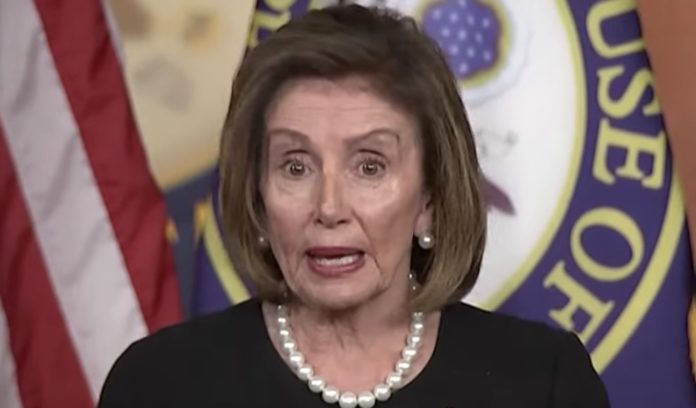Nancy Pelosi and her husband Paul are widely accused of illegally using inside information to gain an edge on the stock market and massively increase their personal wealth.
Pelosi has a personal net worth that exceeds $100 million despite earning roughly $223,500 per year in Congress. The Pelosis have denied any wrongdoing.
Fox News has reported that Paul Pelosi conveniently sold 30,000 shares of Google stock a month prior to the Dept. of Justice’s announcement of an antitrust lawsuit against the tech giant.
Between Dec. 20 and Dec. 28, 2022, Pelosi reported the sale of Google stock in three different transactions.
Each transaction involved the sale of 10,000 shares of stock in Google’s parent corporation Alphabet Inc.
In the end, Pelosi received between $1.5 million and $3 million after trading the 30,000 shares invovled.
In what world, what America, is this not punished? Are we so far beyond repair that if you are a Democrat, absolute corruption is rewarded absolutely?
Josh Hawley introduces PELOSI Act to bar lawmakers from trading stocks and profiting while inhttps://t.co/WaoeSSgQY2 pic.twitter.com/NMolKD2JyJ
— TheRealTimBrown (@TheRealTimBrow2) January 26, 2023
Republican Senator Josh Hawley is looking to change everything. He introduced the PELOSI Act, which would require members and their spouses to divest any holdings or put them in a blind trust within six months of entering office.
Hawley introduces ‘the PELOSI Act,’ a fitting bill to remember the Swamp Queen https://t.co/cvSsdBwqRy pic.twitter.com/TL0Il3pCCd
— Conservative News (@BIZPACReview) January 25, 2023
Senator Hawley explained, “Members of Congress and their spouses shouldn’t be using their position to get rich on the stock market – today I’m introducing legislation to BAN stock trading & ownership by members of Congress.”
“I call it the PELOSI Act,” he added.
More from Fox News:
The bill comes after revelations last year that Nancy’s husband, Paul Pelosi, traded between $1 million and $5 million of stocks for semiconductors just days before Congress allocated $52 million to the industry.
The stocks were later sold at a loss to remove the appearance of impropriety.
Other lawmakers and their spouses have made similarly advantageous trades, including Sen. Richard Burr, R-N.C., who sold investments after receiving classified briefings on the coronavirus pandemic.
Hawley’s bill excludes mutual funds, exchange-traded funds and Treasury bonds purchases.



